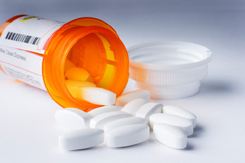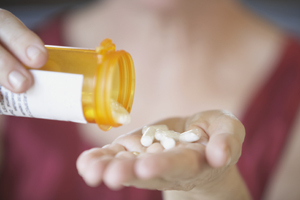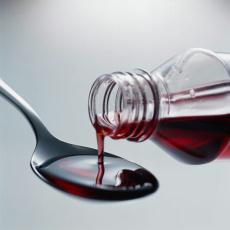
More teens now say it’s easier to get powerful prescription drugs than it is to buy beer.
This project designates August of every year as a month to provide an opportunity for Americans to educate themselves and to talk to their children about the dangers associated with medicine abuse. 1 in 5 teens abuse prescription medicine to get high and 1 in 10 abused cough and cold medicines containing the active ingredient dextromethorphan (DXM).
How National Medicine Abuse Awareness Month Got Started
In July 2008, the United States Senate passed a Bipartisan Resolution sponsored by Senators Joseph Biden, Jr. (D-DE) and Chuck Grassley (R-IA) designating August 2008 as National Medicine Abuse Awareness month. The Resolution was prompted by a recent Substance Abuse and Mental Health Services Administration (SAMHSA) report that cited medicine misuse as the nation’s second biggest drug problem.
Parents, grandparents and other caregivers that young people have easy access to dangerous misused prescription medication in almost every home medicine cabinets,” explained Special Agent in Charge, Gerard P. McAleer, Drug Enforcement Administration (DEA), New Jersey Division. “It is important for all parents to be diligent and lock and safeguard their medications.”
“More teens now say it’s easier to get powerful prescription drugs than it is to buy beer,” noted Department of Human Services Commissioner Jennifer Velez. “Parents have been accustomed to locking their liquor cabinets and talking to their children about the dangers of alcohol and recreational drugs. Now they must be just as diligent in monitoring medicine cabinets and discussing the dangers of misusing and abusing prescription medication.”
Prevent Your Teen from Abusing Medicines

- Lock your medicine cabinet or keep those OTC medicines that could potentially be abused in a less accessible place.
- Avoid stockpiling OTC medicines. Having too many at your teen's disposal could make abusing them more tempting.
- Keep track of how much is in each bottle or container in your medicine cabinet.
- Keep an eye out not only for traditional-looking cough and cold remedies in your teen's room, but also strange-looking tablets
- Watch out for the possible warning signs of abuse listed above.
- Monitor your child's Internet usage. Be on the lookout for suspicious websites and emails that seem to be promoting the abuse of drugs, both legal and illegal.
Above all, talk to your kids about drug abuse and explain that even though taking lots of a cough or cold medicine seems harmless, it's not. Even when it comes from inside the family medicine cabinet or the corner drugstore, when taken in large amounts medicines is a drug that can be just as deadly as any sold on a seedy street corner. And even if you don't think your teens are doing it, chances are they know kids who are.
Cough Medicine Abuse
Chugging cough medicine for an instant high certainly isn't a new practice for teens, who have raided the medicine cabinet for a quick, cheap, and legal high for decades. But unfortunately, this dangerous, potentially deadly practice is on the rise.
So it's important for parents to understand the risks and know how to prevent their kids from intentionally overdosing on cough and cold medicine.
Why Do Kids Abuse Cough and Cold Remedies?

Before the U.S. Food and Drug Administration (FDA) replaced the narcotic codeine with dextromethorphan as an over-the-counter (OTC) cough suppressant in the 1970s, teens were simply guzzling down cough syrup for a quick buzz.
Over the years, teens discovered that they still could get high by taking large doses of any OTC medicine containing dextromethorphan (also called DXM).
Dextromethorphan-containing products — tablets, capsules, gel caps, lozenges, and syrups — are labeled DM, cough suppressant, or Tuss (or contain "tuss" in the title).
Medicines containing dextromethorphan are easy to find, affordable for cash-strapped teens, and perfectly legal. Getting access to the dangerous drug is often as easy as walking into the local drugstore with a few dollars or raiding the family medicine cabinet. And because it's found in over-the-counter medicines, many teens naively assume that DXM can't be dangerous.
What Happens When Teens Abuse DXM?
Although DXM can be safely taken in 15- to 30-milligram doses to suppress a cough, abusers tend to consume as much as 360 milligrams or more. Taking mass quantities of products containing DXM can cause hallucinations, loss of motor control, and "out-of-body" (disassociative) sensations.
Other possible side effects of DXM abuse include: confusion, impaired judgment, blurred vision, dizziness, paranoia, excessive sweating, slurred speech, nausea, vomiting, abdominal pain, irregular heartbeat, high blood pressure, headache, lethargy, numbness of fingers and toes, facial redness, dry and itchy skin, loss of consciousness, seizures, brain damage, and even death.
When consumed in large quantities, DXM can also cause hyperthermia, or high fever. This is a real concern for teens who take DXM while in a hot environment or while exerting themselves at a rave or dance club, where DXM is often sold and passed off as similar-looking drugs like PCP. And the situation becomes even more dangerous if these substances are used with alcohol or another drug.
Acetaminophen

On June 29 and 30, 2009, FDA held an advisory committee meeting in Adelphi, Md., about how to address the problem of liver injury related to the use of acetaminophen in both over-the-counter (OTC) and prescription products.
Acetaminophen is the generic name of a drug found in many common brand name OTC products such as Tylenol, as well as prescription products such as Vicodin and Percocet. Acetaminophen is an important drug, and its effectiveness in relieving pain and fever is widely known. This drug is generally considered safe when used according to the directions on its labeling. But taking more than the recommended amount can cause liver damage, ranging from abnormalities in liver function blood tests, to acute liver failure, and even death. Read more in Acetaminophen and Liver Injury: Q & A
 Print
Print Email
Email







